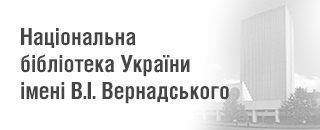MANAGEMENT ACTIVITIES IN THE PART OF PROVIDING COMMUNICATION POLICY IN THE CONDITIONS OF MARTIME
DOI:
https://doi.org/10.31470/2786-6246-2022-2-105-122Keywords:
martial law, public administration, regulatory and legal support, information openness, communication interaction, public authorities, communityAbstract
There is no such section in the management textbooks as "Management in Wartime." Many write about crisis management. But the crisis is not a war. No one subconsciously wanted to understand that martial law was possible, that war would come to Ukraine. They thought - mine, it used to be. Everyone lives this period in their own way. Some go to the front, some become volunteers, some are paralyzed by fear and depression, and some have to be managers. But this is not the kind of government that is in peacetime. How to manage in the face of life-threatening and uncertain, what regulations should be?
For the manager, the situation is complicated by the fact that he needs not only to "cope with himself", but also to focus, act. The public looks to him and expects sympathy, support, understanding, clear and transparent communication, actions and deeds. Not all managers can give what is expected of them. They are people too. On the other hand, the fact that the manager needs to support and organize the team, encourages him to communicate and interact. He is forced to be the first to analyze information, predict developments and make decisions.
The current concept of public administration requires officials of public authorities, local governments to be more sensitive to citizens' requests, more widely involve civil society institutions in public administration decisions, to conduct their activities transparently and openly. After all, the wide range of opportunities for civil society is growing in conditions of war, life-threatening.
Public information and communication are the main tools for ensuring openness and transparency of the subjects of power relations. The authorities should be interested in establishing communication in various forms, which will contribute to the success of the tasks and increase the trust of citizens. Not just trust, but roles. It is established that the information relations between the subjects of public administration are based on the principles of openness, accessibility, reliability, completeness, legality of receiving, using and disseminating information. At the same time, in order to establish two-way communication, communication in public administration between government and the public must comply with the principles of transparency, openness, honesty, efficiency, adequacy, partnership, credibility and accountability. Briefly analyzing, we see that information and communication activities are regulated by certain provisions of the Constitution of Ukraine, laws of Ukraine, resolutions of the Cabinet of Ministers of Ukraine, administrative documents of military administrations and other regulations. They disclose the rights and responsibilities of public authorities to transparently disclose information and report on their activities, respond to inquiries, publicly discuss draft regulations, hold public hearings and take into account public opinion. It is established that the best forms of communication in peacetime are: reception of citizens, meetings, consultations, round tables, seminars, conferences, meetings, gatherings, meetings, gatherings, ceremonial events, public hearings, public debates, demonstrations, presentations, exhibitions, briefings, press conferences, press tours, incoming and outgoing correspondence, media reports, social networks and websites. Some, operational ones, are effective during martial law.
Involvement of international technical assistance programs and projects contributes to the establishment of communication between public authorities and representatives of civil society institutions, in particular during the development of communication strategy.
References
Kuibida, V. S. (2018), Publichne upravlinnia: termin. slovn. [Public administration: term. slovn.], Kyiv: NAPA [in Ukrainian].
Kozakov, V. M. (2017), Derzhavno-hromadianska komunikatsiia: shliakh vid kryzy do vzaiemodii: monohrafiia [State and civil communication: the path from crisis to interaction: a monograph], Kyiv: SE “Ed. House "Staff" [in Ukrainian].
Konstytutsiia Ukrainy [The Constitution of Ukraine], Retrieved from https://zakon.rada.gov.ua/laws/show/254%D0%BA/96-%D0%B2%D1%80#Text [in Ukrainian].
Zakon Ukrainy «Pro informatsiiu» [Law of Ukraine «On information»], Retrieved from https://zakon.rada.gov.ua/laws/show/2657-12#Text [in Ukrainian].
Zakon Ukrainy «Pro dostup do publichnoi informatsii» [Law of Ukraine «On access to public information»], Retrieved from https://zakon.rada.gov.ua/laws/show/2939-17#Text [in Ukrainian].
Zakon Ukrainy «Pro zatverdzhennia Ukazu Prezydenta Ukrainy "Pro vvedennia voiennoho stanu v Ukraini» [Law of Ukraine "On approval of the Decree of the President of Ukraine" On the imposition of martial law in Ukraine "], Retrieved from https://zakon.rada.gov.ua/laws/show/2102-20#Text [in Ukrainian].
Zakon Ukrainy «Pro orhanizatsiiu trudovykh vidnosyn v umovakh voiennoho stanu» [Law of Ukraine "On the organization of labor relations in martial law"], Retrieved from https://zakon.rada.gov.ua/laws/show/2136-20#Text [in Ukrainian].




